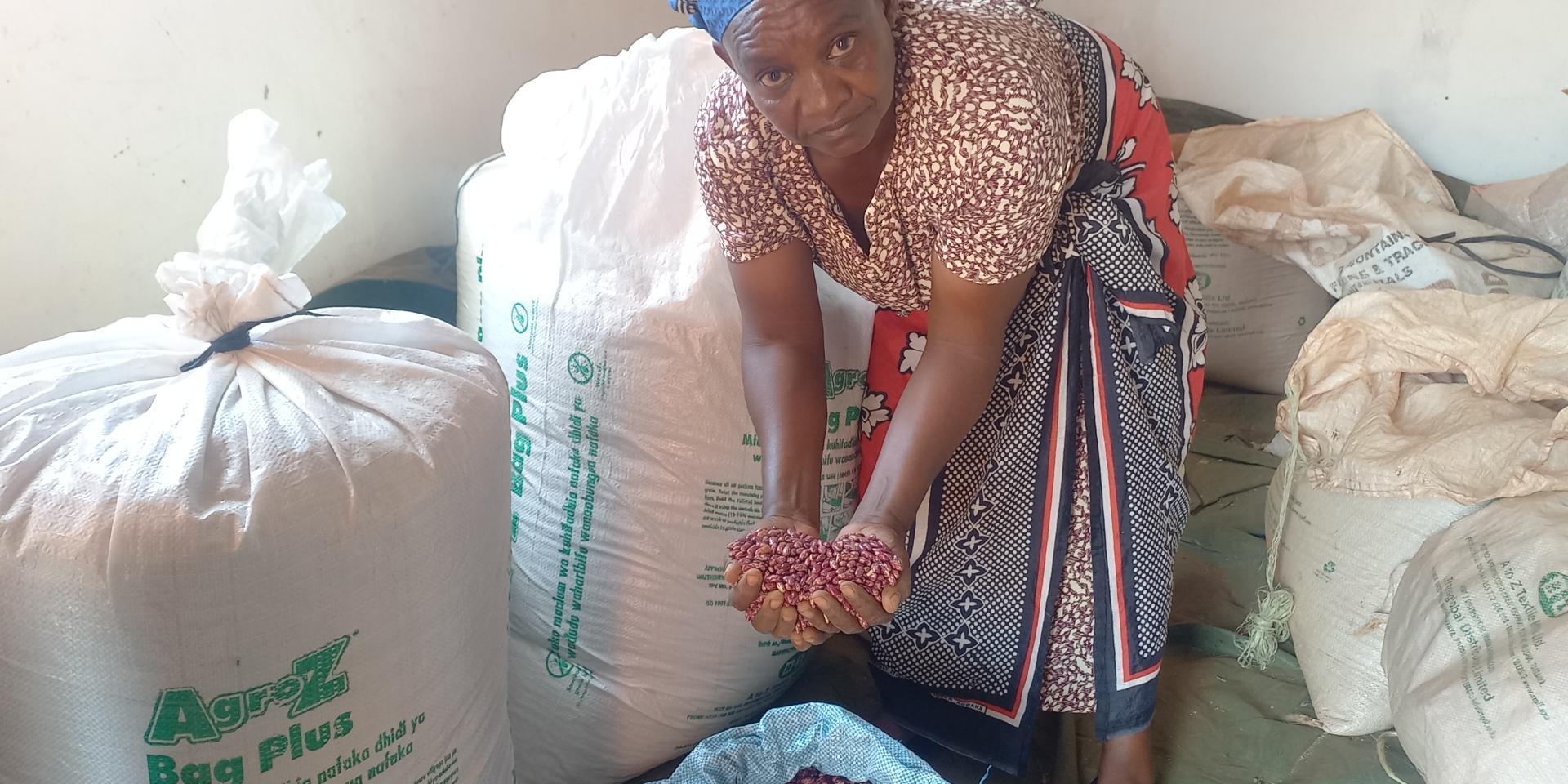With new bean varieties, women farmers in Kenya cope with drought
 Photo: Boaz Waswa/CIAT
Photo: Boaz Waswa/CIAT
In Makueni County, Kenya, a story of hope in the face of relentless drought thanks to new bean varieties and climate-smart agriculture technologies.
Agnes Muendo, Eleanor Muli, and Phoebe Mwangangi from Makueni County, Kenya, ended the 2022/23 cropping season with some peace of mind having harvested a significantly increased yield from tiny fractions of their land despite the prolonged drought.
This situation would usually result in crop failure and zero produce.
The three women are early adopters and lead farmers in their community who embraced climate-smart farming practices touted by The Alliance of Bioversity and CIAT (The Alliance) and its Accelerating Impacts of CGIAR Climate Research in Africa (AICCRA) project to build resilience for smallholder farmers to climate change.
Kenya’s dryland areas, including Makueni County, have experienced reduced annual rainfall and more prolonged droughts for five consecutive seasons. Farmers in these regions mostly grow crops susceptible to drought, often drying up before maturity.
This has adversely affected rainfed agriculture and diminished food reserves, pushing an estimated five million Kenyans into famine and starvation.
Over two seasons, AICCRA has promoted and scaled a package of CGIAR climate-smart agriculture practices and technologies in Makueni to build climate change resilience among smallholder farmers, especially women. These technologies include improved drought-tolerant crop varieties, climate-smart farm and crop management practices, and rainwater harvesting.